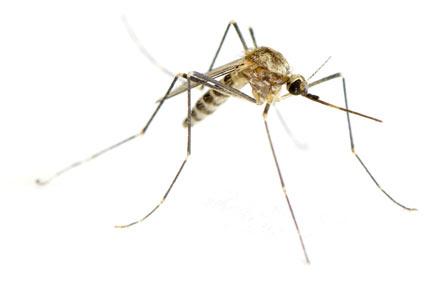Scientists have discovered new way to trap and kill malaria by entombing the parasite in a prison of its own making. As it invades a red blood cell, the malaria parasite takes part of the host cell's membrane to build a protective compartment

Washington: Scientists have discovered new way to trap and kill malaria by entombing the parasite in a prison of its own making. As it invades a red blood cell, the malaria parasite takes part of the host cell's membrane to build a protective compartment.
 Representational picture
Representational picture
ADVERTISEMENT
To grow properly, steal nourishment and dump waste, the parasite then starts a series of major renovations that transform the red blood cell into a suitable home. But new research at the Washington University School of Medicine in St Louis shows the proteins that make these renovations must pass through a single pore in the parasite's compartment to get into the red blood cell. When the scientists disrupted passage through that pore in cell cultures, the parasite stopped growing and died.
A separate study by researchers at the Burnet Institute and Deakin University in Australia, also highlights the importance of the pore to the parasite's survival. Researchers believe blocking the pore leaves the parasite fatally imprisoned, unable to steal resources from the red blood cell or dispose of its wastes. The malaria parasite, Plasmodium falciparum, is among the world's deadliest pathogens. Malaria is spread mainly by the bite of infected mosquitoes and is most common in Africa.
In 2012, an estimated 207 million cases of malaria occurred worldwide, leading to 627,000 deaths, according to the World Health Organisation. Resistance to drug treatments is spreading among the parasite's many strains, and researchers are working hard to find new drug targets. Senior author Daniel Goldberg, professor at Washington University, and his colleagues looked at heat shock protein 101 (HSP101).
The proteins have multiple functions, including guiding the folding and unfolding of other proteins. Previous studies have suggested that HSP101 might be involved in protein secretion. The researchers disabled HSP101 in cell cultures, expecting to block the discharge of some malarial proteins. To their surprise, they stopped all of them. "We think this is a very promising target for drug development," Goldberg said. The finding was published in the journal Nature.
 Subscribe today by clicking the link and stay updated with the latest news!" Click here!
Subscribe today by clicking the link and stay updated with the latest news!" Click here!







